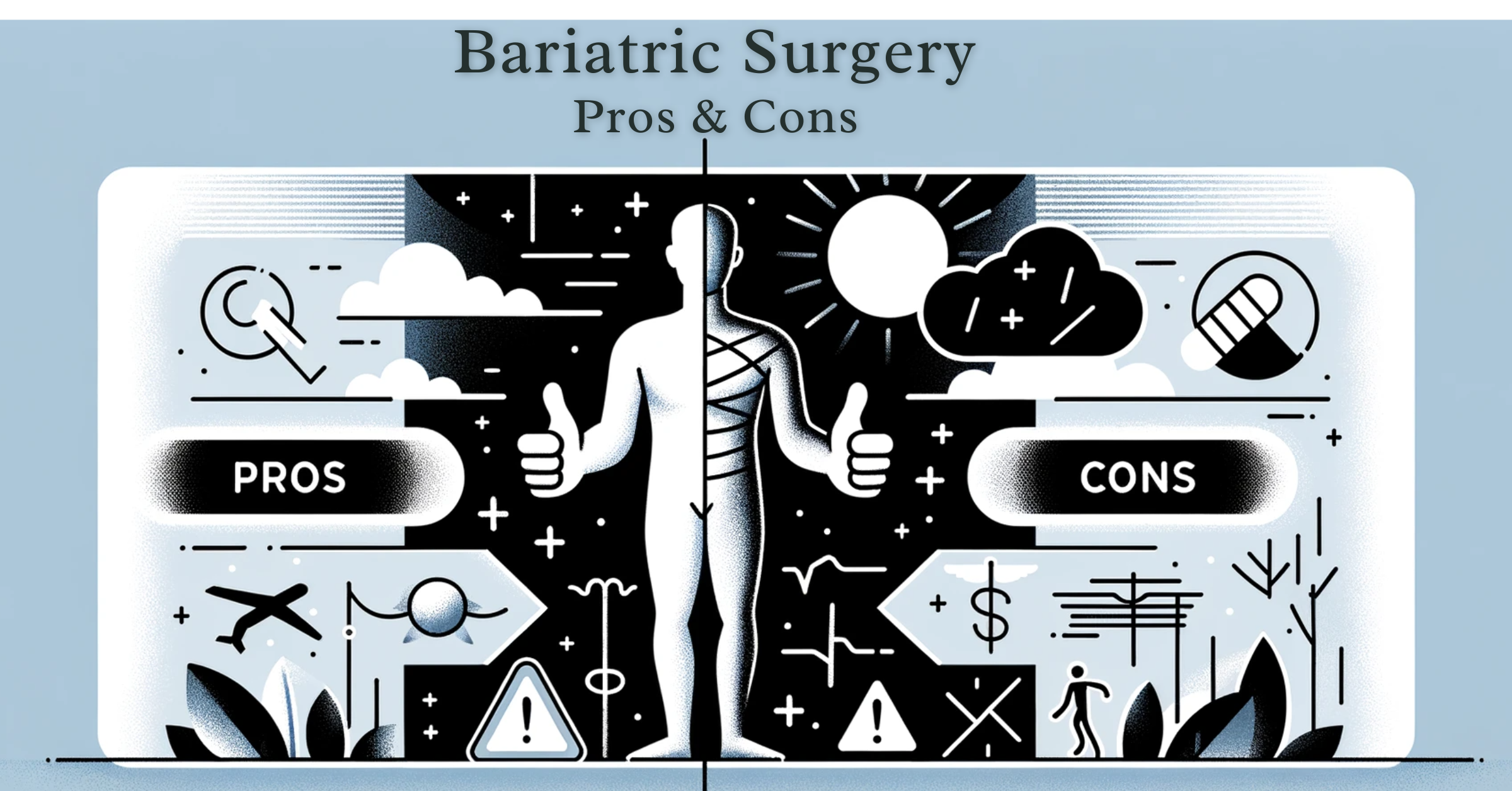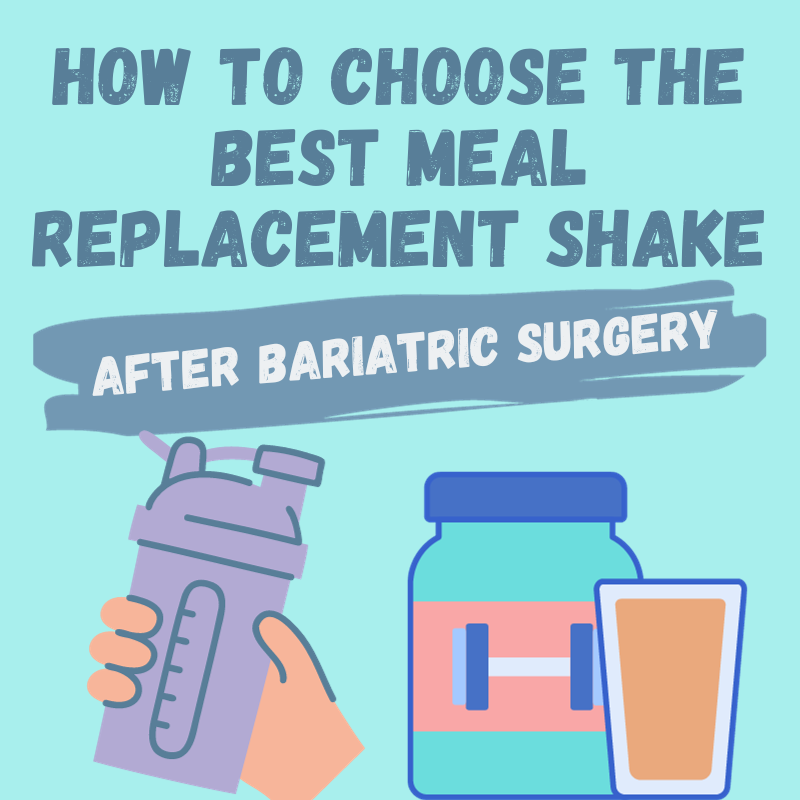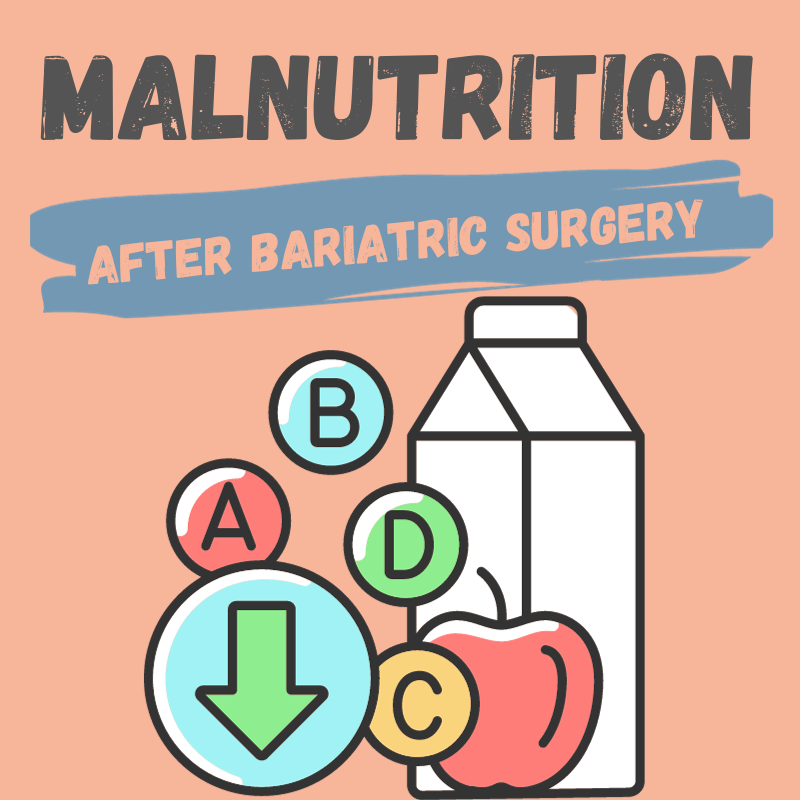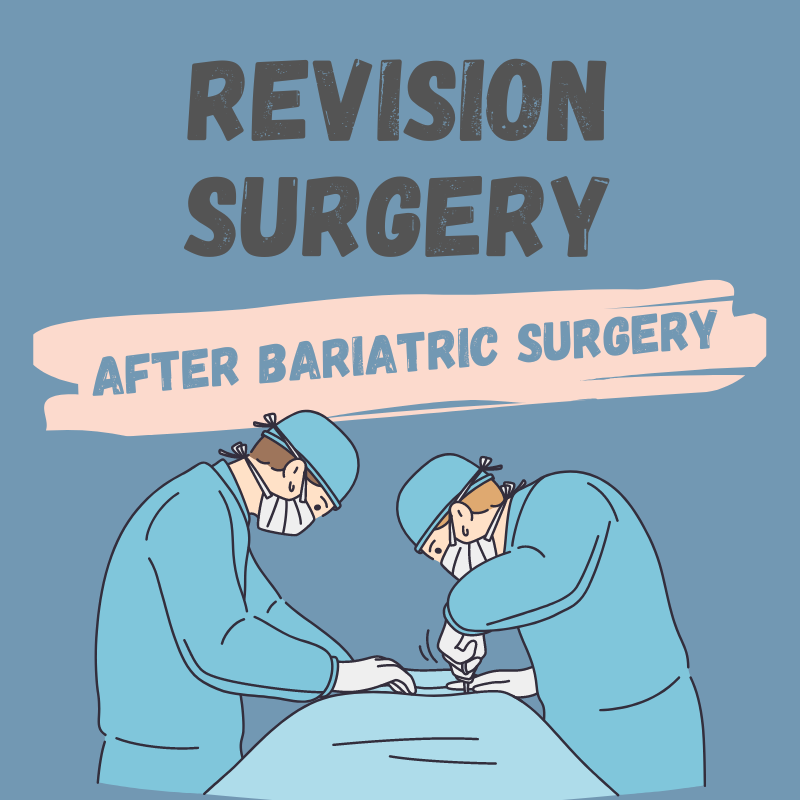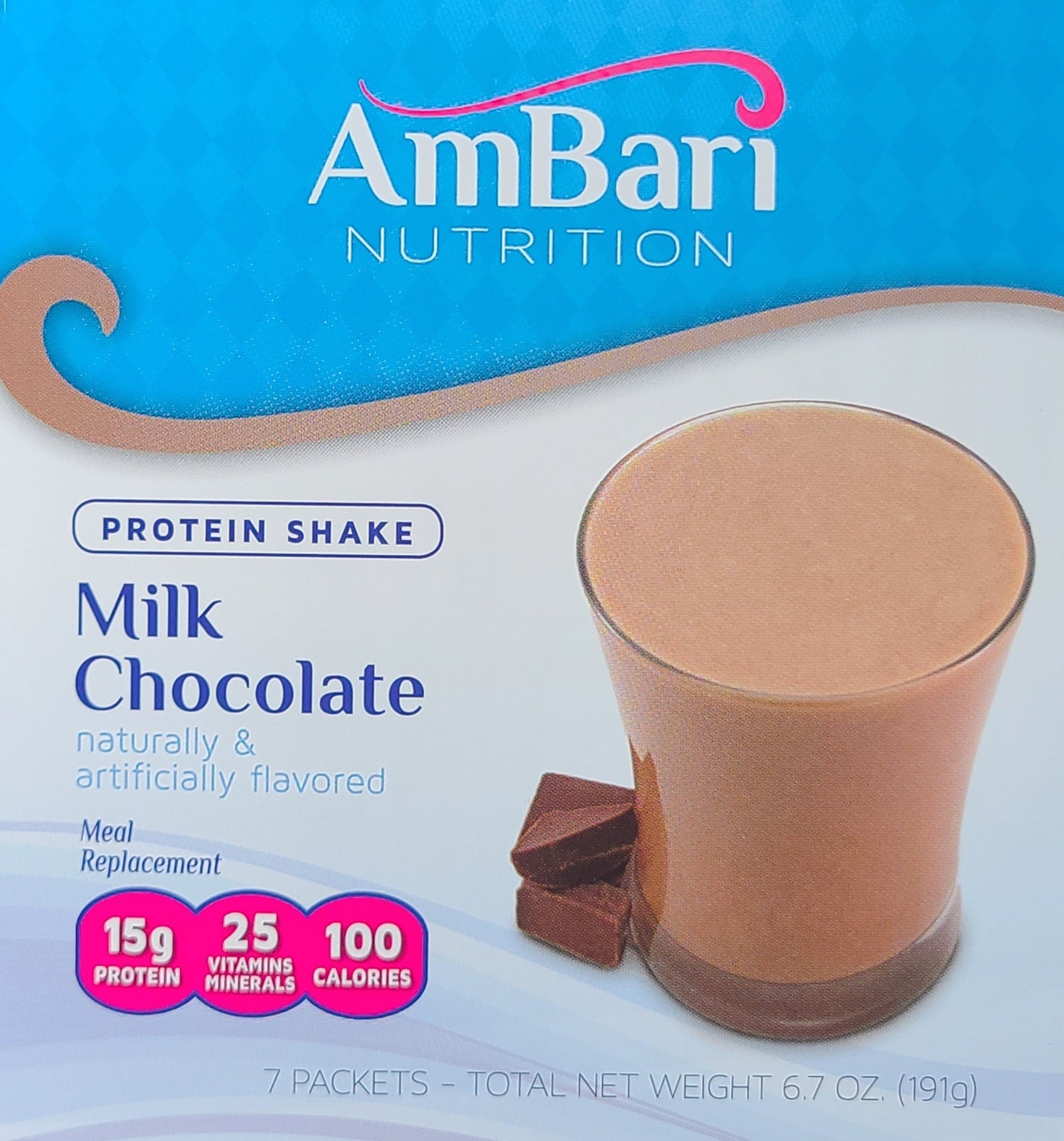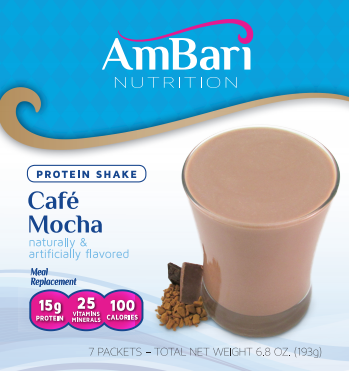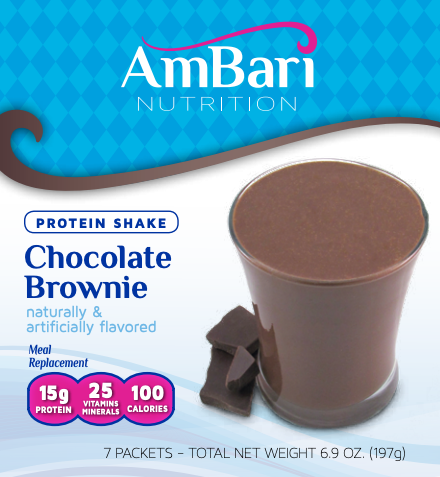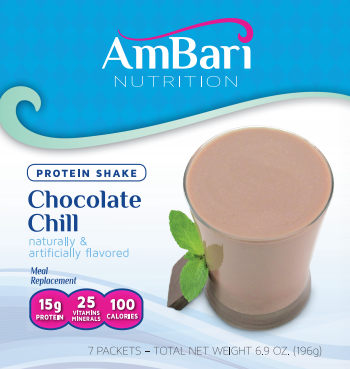Your cart is empty
GERD After Bariatric Surgery (Gastroesophageal Reflux Disease)

Bariatric surgery has become a beacon of hope for many grappling with obesity, offering a path to healthier living and improved quality of life. However, like any surgical procedure, it's not without potential complications. One such complication that has been increasingly observed is Gastroesophageal Reflux Disease (GERD), a chronic condition that can significantly impact a patient's comfort and well-being.
GERD is a digestive disorder that affects the ring of muscle between your esophagus and your stomach. This often results in acid reflux and heartburn. However, GERD is more than just occasional heartburn. It's a chronic condition that, if not treated, can lead to complications such as esophageal damage.
| Bariatric Surgery | A surgical procedure that alters the digestive system to aid in weight loss. |
| GERD | Gastroesophageal Reflux Disease, a chronic condition that can occur when the lower esophageal sphincter (LES) allows stomach acid to reflux into the esophagus. |
| Connection | The anatomical changes made during bariatric surgery can affect the function of the LES, potentially leading to GERD. |
| Symptoms of GERD | Heartburn, regurgitation, difficulty swallowing, chronic cough, laryngitis, and disrupted sleep. |
| Treatment Options | Medications (proton pump inhibitors, H2 blockers, antacids), dietary modifications, and lifestyle changes. |
| Lifestyle Changes | Avoiding trigger foods, eating smaller meals, not eating close to bedtime, and elevating the head of the bed. |
Studies have shown an increased incidence of GERD in patients post-bariatric surgery. While the exact reasons for this are still being explored, it's clear that the anatomical changes made during bariatric surgery can have an impact on the function of the lower esophageal sphincter (LES), potentially leading to GERD.
Symptoms of GERD After Bariatric Surgery
- Heartburn, a burning sensation in the chest
- Regurgitation, a sensation of acid backing up into your throat or mouth
- Difficulty swallowing
- Chronic cough
- Laryngitis
- Disrupted sleep due to discomfort
The symptoms of GERD after bariatric surgery are generally the same as those of GERD in the general population, including heartburn, regurgitation, difficulty swallowing, chronic cough, laryngitis, and disrupted sleep. However, there may be some differences in how these symptoms present or are experienced after bariatric surgery.
For example, due to the changes in the stomach and digestive tract, some patients may experience more severe regurgitation or difficulty swallowing. Additionally, because the stomach is smaller after bariatric surgery, heartburn may occur more frequently or be more noticeable, especially after eating.
It's also worth noting that some patients may not have experienced GERD symptoms prior to surgery but develop them postoperatively. This is why it's so important for patients to have regular follow-ups with their doctors after bariatric surgery to monitor for potential complications like GERD.
The Connection Between Bariatric Surgery and GERD
Bariatric surgery, by design, alters the digestive system to aid in weight loss. This alteration, while beneficial for managing obesity, can sometimes lead to the development of GERD. The changes to the stomach and esophagus can affect the lower esophageal sphincter (LES), the muscle at the junction of the esophagus and stomach that acts as a barrier to prevent stomach acid from refluxing back into the esophagus.
In a healthy digestive system, the LES opens to allow food to enter the stomach and then closes to prevent the contents of the stomach from refluxing back into the esophagus. However, the anatomical changes that occur during bariatric surgery can affect the function of the LES. For instance, the reduction in the size of the stomach can increase the pressure within it, which can in turn lead to more frequent opening of the LES, allowing stomach acid to enter the esophagus.

Certain types of bariatric surgery, such as the Roux-en-Y gastric bypass, involve creating a smaller stomach pouch and rerouting the digestive tract. This can bypass the LES entirely, potentially leading to increased acid reflux.
It's also worth noting that weight loss itself, while generally beneficial for health, can lead to changes in the way the LES functions. Rapid weight loss, such as that which occurs after bariatric surgery, can lead to hormonal changes that affect the LES.
Managing GERD Post-Bariatric Surgery
If you're experiencing symptoms of GERD after bariatric surgery, it's important to seek medical advice. GERD is not just a discomfort—it's a condition that can lead to serious complications if left untreated, including esophageal damage and increased risk of esophageal cancer.

Treatment options for GERD post-bariatric surgery are diverse and can be tailored to your specific needs and circumstances. Medications, such as proton pump inhibitors or H2 blockers, can reduce the production of stomach acid, helping to alleviate GERD symptoms. Antacids can also provide quick relief by neutralizing stomach acid.
Lifestyle changes are another important aspect of managing GERD. Dietary modifications can make a significant difference. Foods and drinks that commonly trigger acid reflux include spicy foods, fatty foods, chocolate, mint, garlic, onion, caffeine, carbonated drinks, and alcohol. Avoiding these triggers can help reduce the frequency and severity of GERD symptoms.
Eating smaller, more frequent meals instead of three large meals a day can also help manage GERD symptoms. This approach can prevent your smaller post-surgery stomach from becoming too full, which can contribute to acid reflux.
It's also beneficial to avoid eating within 2-3 hours of bedtime, as lying down can make it easier for stomach acid to flow back into your esophagus. Elevating the head of your bed can also help prevent nighttime acid reflux.
Conclusion
While bariatric surgery offers a transformative path towards healthier living for those grappling with obesity, it's important to be aware of potential postoperative complications. GERD, with its chronic nature and potential to significantly impact quality of life, is one such complication that patients should be mindful of.
However, the occurrence of GERD after bariatric surgery is not a foregone conclusion, and even when it does occur, it can be effectively managed with the right treatment and lifestyle modifications. From medications to dietary changes, there are a variety of strategies that can help manage GERD symptoms and improve patient comfort.
Author: Joey Young Joey is a writer and researcher with a big passion for health. As a dad to five kids and three dogs, he knows first-hand the importance of a healthy lifestyle. His work is all about sharing useful health advice and insights with readers from all walks of life. |
Reviewed By: Dr. K. Huffman Dr. Kevin D. Huffman, D.O., is a board-certified bariatric physician with a distinguished reputation in obesity treatment. As the founder of American Bariatric Consultants, he has impacted over 10,000 patients and trained numerous healthcare providers. His protocols and training materials have made him a national leader in bariatric medicine. |
Bariatric Guides & Information
More Info
Customer Favorites
- Choosing a selection results in a full page refresh.





